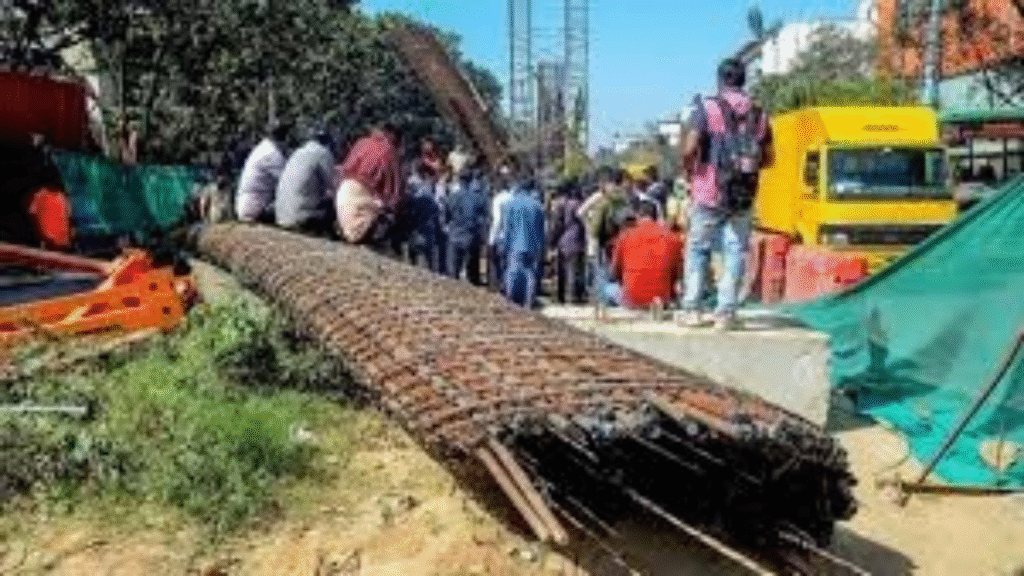Now Reading: Amroha Police Officer Trolled for Promoting ‘IIT Baba’ at Tigri Mela
-
01
Amroha Police Officer Trolled for Promoting ‘IIT Baba’ at Tigri Mela
Amroha Police Officer Trolled for Promoting ‘IIT Baba’ at Tigri Mela

Deputy Superintendent of Police (DSP) Anjali Kataria of the Amroha Police in Uttar Pradesh has found herself at the centre of a social media storm after sharing a promotional video for an individual known as ‘IIT Baba,’ and urging citizens to attend the upcoming Tigri Mela to meet him. The post quickly drew sharp criticism from netizens, with the phrase “DSP Kisne Bana Diya…” (Who made her a DSP…) becoming a recurring theme in the comments section.
The Controversial Post and ‘IIT Baba’
The controversy stems from a post shared by DSP Anjali Kataria on her official X (formerly Twitter) handle. The post featured a video message from Abhey Singh, who goes by the moniker ‘IIT Baba.’ Singh, who gained some viral fame during the Maha Kumbh earlier this year, is known for his unusual background—having studied at IIT Bombay, completed his B.Tech in Aerospace Engineering, and worked for a Canadian MNC before embracing a life of ‘Bhaktiyog’ or devotion.
In her post, the DSP enthusiastically invited people to the religious congregation, writing: “After Mahakumbh ’25, IIT-Baba (Shri Abhey Singh) is now coming to Tigri-Dham #Amroha. Before #IITBombay, Abhey did B.Tech (Aerospace) and then Masters, started a startup first, and then worked in a Canadian MNC. Now they are fully connected with Bhaktiyog. Come to Tigri Dham to meet them on 2 November (Sunday).” She also included a link to the Amroha Police WhatsApp channel for live updates on the gathering.
Abhey Singh, in his video, informed his followers that he would also be participating in a conference on career development and mental health during the mela.
Netizens Question Officer’s Judgment and Conduct
The police officer’s active promotion of ‘IIT Baba’ sparked an immediate and intense backlash online. Social media users expressed disbelief and disappointment, questioning the propriety of a senior police official leveraging her professional platform to promote a personality whose image is considered questionable by some.
- The ‘DSP Kisne Bana Diya’ Outcry: The most prominent reaction questioned the officer’s suitability for her post, encapsulated by the recurring Hindi comment, “Aapko dsp kisne bna diya, ye kaun sa prachar hai,” which translates to “Who made you a DSP? What kind of promotion is this?”
- Concerns over Background: A significant number of critics raised concerns about ‘IIT Baba’s’ past, particularly referencing an alleged incident where he was reportedly arrested in Jaipur in March this year for possession of a small quantity of marijuana. Netizens questioned the police officer’s judgment in promoting an individual with such a reported history.
- “Spoiled Genius” Allegations: Other comments labelled Abhey Singh as a “spoiled genius” and suggested that his issues might be psychological rather than spiritual. One user commented, “This is not Bhakti Yoga; he is an addict and has been a spoiled genius since student life. If he had received psychiatric treatment on time, he could have been cured.”
- The Role of a Police Officer: Several commentators opined that an officer in a position of responsibility should be setting a positive social example and questioned the use of police channels to promote religious or non-official personalities.
Context: DSP Anjali Kataria
DSP Anjali Kataria, a PPS officer of the 2016 batch, is known to be relatively active on social media. Originally from Moradabad, she is currently posted in Amroha. Her social media presence often includes posts relating to police involvement in social work and encouraging students, such as a recent post offering motivation after the UPSC CSE Mains results. However, this latest instance of public promotion has triggered a unique level of scrutiny and public disapproval, highlighting the delicate balance public servants must maintain when using social media.
The incident underscores the growing challenges public officials face in the digital age, where a single post can quickly escalate into a full-blown controversy, demanding a re-evaluation of the professional boundaries on social media platforms.










